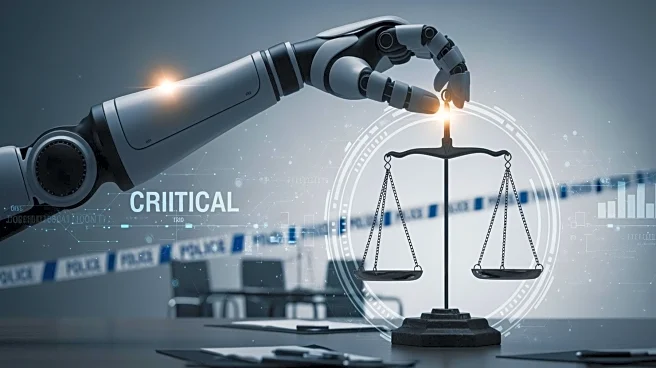What's Happening?
At the 2025 ClioCon, Clio, a prominent legal tech company, made a notable decision to avoid the buzzword 'agentic' in its presentations. Instead, CEO Jack Newton emphasized terms like 'automation' and 'teammates' to describe Clio's approach to integrating
technology into legal workflows. This choice reflects Clio's strategy to engage more effectively with its user base, primarily lawyers, who may be wary of the implications of 'agentic' AI. The term 'agentic' has been widely used in the legal tech industry to describe AI systems that operate autonomously, but Clio's leadership believes this terminology does not resonate with the practical needs of attorneys. By focusing on collaboration and automation, Clio aims to position its products as tools that enhance, rather than replace, the work of legal professionals.
Why It's Important?
Clio's decision to distance itself from the term 'agentic' AI is significant as it highlights a shift in how legal tech companies are addressing the concerns of their primary users—lawyers. The legal industry is traditionally cautious about adopting new technologies that could disrupt established practices. By avoiding the term 'agentic,' which suggests a level of autonomy that might be unsettling to legal professionals, Clio is aligning its messaging with the industry's preference for tools that support rather than supplant human judgment. This approach could influence other companies in the legal tech space to reconsider their marketing strategies and product development, potentially leading to broader acceptance and integration of AI-driven tools in legal practices.
What's Next?
Clio's strategic pivot may prompt other legal tech companies to reevaluate their use of terminology and the way they present AI capabilities. As the industry continues to evolve, there may be increased emphasis on developing AI tools that prioritize collaboration and user control. Legal professionals and firms might become more open to adopting AI solutions that are framed as supportive teammates rather than autonomous agents. This could lead to a more widespread and nuanced integration of AI in legal workflows, enhancing efficiency while maintaining the central role of human expertise.
Beyond the Headlines
The shift away from 'agentic' AI in legal tech raises broader questions about the ethical and practical implications of AI in professional settings. As AI technologies become more sophisticated, there is a growing need to balance innovation with the preservation of professional standards and accountability. Clio's approach underscores the importance of maintaining human oversight and collaboration in AI-driven processes, which could serve as a model for other industries grappling with similar challenges.

















